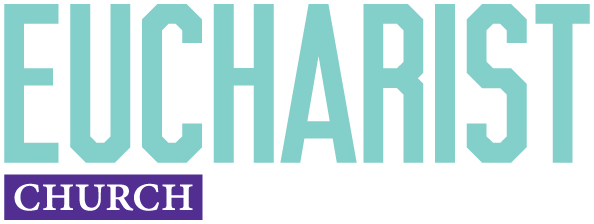Who is Eucharist?
For over a decade, the image that has shaped our church is “the table.”
Jesus lived in an incredibly polarized culture. The Roman Empire was the most recent occupier of Israel’s land, the latest in a line of oppressors that had lasted hundreds of years. As an Israelite, Jesus knew the story of his people. He saw his people turn on one another in pursuit of money, privilege, and power. He knew the stories of revolution, and how they always resulted in more death. He saw the increasing corruption of Israel’s spirituality, as legalism and fundamentalism choked out the working of God’s Spirit.
And Jesus’ response to all this violence, corruption, and polarization… was to set a table.
Jesus ate with those considered sinners by the religious leaders of the day, and also ate with the religious leaders of the day. He broke bread with tax-collectors, who had sold out God’s people and profited off their occupation, and Zealots, a group of Israelite radicals who wanted to… beat up tax collectors. He filled the glass of the unclean and untouchable, and of those who considered themselves the elites. He had slow, patient meals with those who knew the Scriptures word for word and others who weren’t even welcome in the temple.
And the strangest thing happened: As they broke bread with Jesus, and listened to one another’s stories, they experienced an internal shift. Everyone experienced a change of heart. Some became more generous and merciful. Others recognized that they were forgiven and healed. Many apologized for their judgements or hypocrisy or participation in unjust systems. Together, the followers of Jesus began to understand how connected they were in God and, over time, this created a movement.
After his death and resurrection, this table fellowship continued to shape God’s people.
The early church was a place where different classes, tribes, cultures and genders came together.
They gathered most often around a table, where they continued to be transformed by the power of Christ’s Spirit, still present with them at the table. Ultimately this movement of Jesus, today called the Church, would outlive the Roman empire, and all empires that came after it. The spiritual reality of Christ’s Church would outlast the tallest temples and grandest palaces. All because he gathered absolutely everyone at the table, and there they encountered the Living God.
This is the movement that Eucharist Church wants to be a part of. Even our name, eucharist, refers to the final meal Jesus shared with his disciples, in which he promised that he would be with them whenever they broke bread and drank wine together.
It is Christ’s table, and we want to be like him in welcoming everyone:
Those who were raised in the church and those who are afraid to darken the doorsteps, seekers of all ages, backgrounds, and ethnicity, bringing with them unique tongues and cultures. We embrace men and women and non-binary folk, families both found and formed. We set the table for the broke, the rich, and everyone in between. We worship with newborn babes and seasoned saints, those who are queer, those who are straight, those who vote differently across the spectrum, as well as anarchists and monarchists. We make space at the table for different theological perspectives, for people who come from different faith traditions or no religious background at all.
Jesus showed us that each person is made in the Image of God, infinitely valuable and loved, so we make space for each person at Christ’s table.
Jesus only had one condition for those he ate with: That they be hungry. Physically, but also spiritually.
That they humbly take a seat and join with all God has gathered, who together become the family of God.
We do not do this perfectly at Eucharist (we aren’t quite on Jesus’ level) but this vision of church is our deepest desire and hope.
If this awakens something in you, some hope or desire, then we’d love to have you connect with our community.
We’re saving a seat for you.
Interesting in hearing more of our story?
Kevin Makins, the founding pastor of Eucharist Church, recently released his first book “Why Would Anyone Go to Church?” which is narratively held together with the story of Eucharist’s first seven years.
If you’re interested in learning more about the history of Eucharist, or just reflecting further on why anyone would actually be a part of the church, you can get a copy of it at our church building or wherever you buy books.




